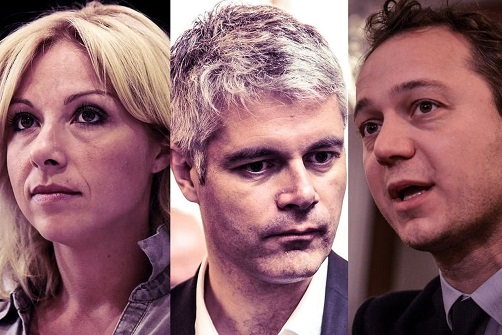A dull election campaign, with no appeal. In fact, this election boils down to tallying the support of local leaders who have taken a position based on their personal interests.
The winner will have to reorganize a party “stunned” by electoral failures, balance the various political lines to avoid new factions in addition to those already formed, assert themselves despite some leaders having made it clear they will maintain their autonomy, and oppose the government’s actions without falling into populism or radicalism, which would not be accepted by all.
In Nice and its region, the situation is … multifaceted: while Eric Ciotti is one of Laurent Wauquiez’s lieutenants, Christian Estrosi played no role. He hosted the two most representative candidates but did not officially declare his position.
It is known that Leonetti (mayor of Antibes) expressed support for Laurent Wauquiez, while David Lisnard chose Florence Portelli.
For the record, no rally took place in Nice, with only one organized in the west of the department (in Mandelieu) in support of Laurent Wauquiez.
At the regional level, Renaud Muselier shows his preference for the president of the Auvergne-Rhône-Alpes region: solidarity between colleagues, or a bid for the Marseille mayoralty in return?
The voting to elect the new leader of the Republicans began this Saturday at 8 p.m. The 234,556 members up to date with their dues vote electronically. They will also have the option to vote on Sunday at one of the 251 polling stations set up for the occasion.
Three candidates are in the running: Laurent Wauquiez, who is viewed as the ultra-favorite, Florence Portelli, and Maël de Calan.
The mobilization of party members is one of the great uncertainties of this election. Forecasts range from 50,000 to 80,000 voters.
The highly probable affirmation of Laurent Wauquiez, who wants to steer the party on a conservative-reactionary line, will result in a strengthening of the vast center nebula, which is being recomposed between one convulsion and another: “There will be no more alliances with the Republicans as a party,” according to Jean-Christophe Lagarde, president of the UDI, who envisions ad personam alliances with local figures.
For its part, the unified Radical Party has announced its intention to organize a distinct and independent centrist space.
Ultimately, Laurent Wauquiez’s election would be good news for President Macron: between Marine Le Pen’s far-right, the pure and hard “republican” right on one side, and the radical left on the other, a vast clearing opens up in the center. If a common list for the 2019 European elections comes to fruition, the electoral platform for the 2022 presidential elections would already be ready.


